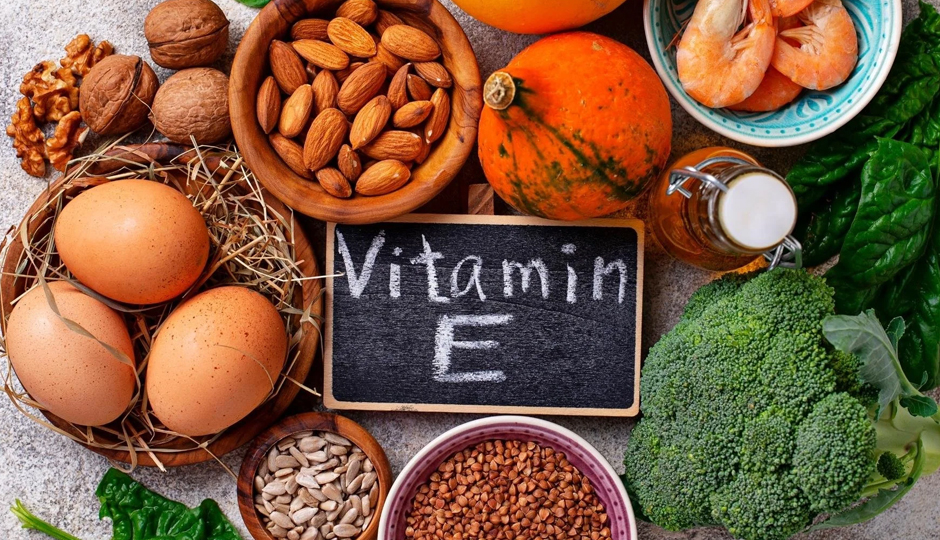- Home›
- Healthy Living›
- 13 Herbs That Can Help Regulate Blood Sugar Levels In Diabetes
13 Herbs That Can Help Regulate Blood Sugar Levels In Diabetes
By: Priyanka Maheshwari Sat, 07 Oct 2023 4:00:13

High sugar levels can lead to diabetes. Thankfully, natural remedies also work great for keeping your sugar levels under control. Using herbs for diabetes is one such remedy you can use. Of course, you also must reduce consuming foods high in sugar or with a high glycemic index. You must also start exercising 4-5 times a week. While diabetes type 1 may require you to take insulin injections along with these herbal remedies, diabetes type 2 can be reversed by changing your lifestyle and taking these herbs. Read on to learn about the 25 best herbs, spices, and supplements for diabetes, how to consume them, and how you can procure them. Fixing your lifestyle and your daily diet can go a long way in improving your health.
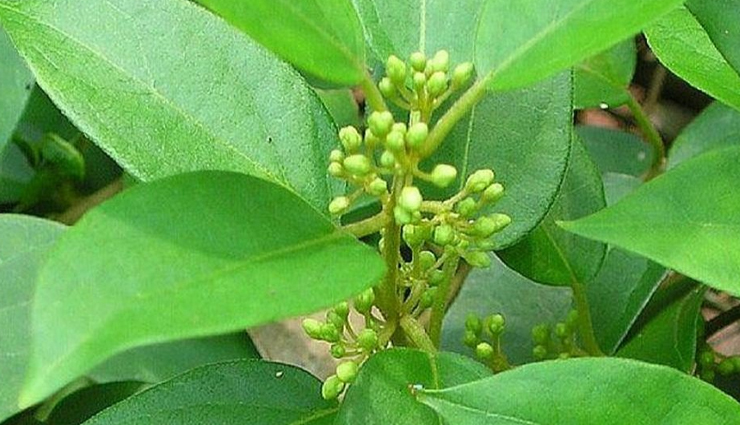
# Gymnema Sylvestre
This plant is commonly referred to as the 'sugar destroyer' in Hindi, a testament to its remarkable properties in managing diabetes. Gymnema Sylvestre is rich in glycosides known as gymnemic acids, which play a pivotal role in reducing the sensitivity of taste buds to sweetness. This property is particularly beneficial for prediabetics as it helps curb sugar cravings. Furthermore, individuals already dealing with type 2 diabetes can harness the herb's potential to regulate their blood sugar levels. Gymnema Sylvestre promotes enhanced enzyme activity within cells, facilitating the efficient utilization of excess glucose in the body. It can also have a positive impact on insulin production.
How to Incorporate Gymnema Sylvestre & Recommended Dosages:
Gymnema Sylvestre can be consumed in various forms, including powdered, as tea made from its leaves, or in capsule form. To prepare tea, steep the leaves in boiled water for approximately 10 minutes, or mix the powder with a cup of lukewarm water for consumption. The recommended dosages are as follows:
Capsule: 100mg
Powder: ½-1 teaspoon
Leaves: 1 teaspoon
Optimal Timing for Gymnema Sylvestre Consumption:
For optimal results, it is advisable to consume Gymnema Sylvestre in the morning or approximately 20 minutes before meals.
Where to Find Gymnema Sylvestre:
Gymnema Sylvestre can be conveniently purchased online, as well as at Ayurvedic stores or pharmacies.
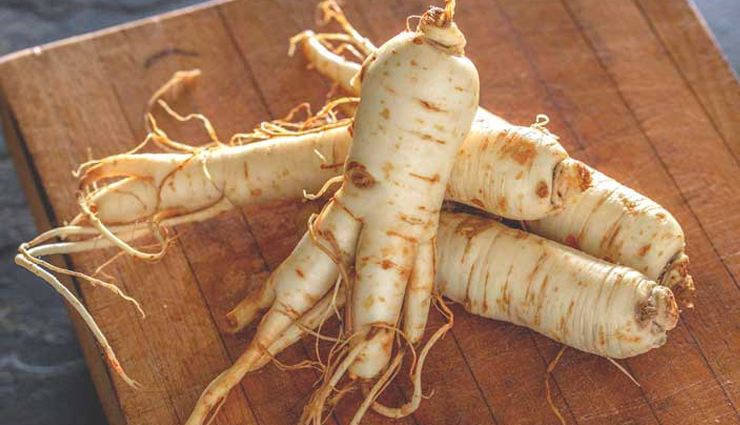
# Ginseng
Ginseng has long been celebrated for its immune-boosting and disease-fighting properties, but recent research has unveiled its anti-diabetic potential. The consumption of ginseng leads to a deceleration in carbohydrate absorption and an enhanced uptake and utilization of glucose by cells. Additionally, it stimulates increased insulin production in the pancreas. Collectively, these effects contribute to a healthier body less susceptible to diabetes. For those already managing diabetes, ginseng can help lower blood glucose levels by 15 to 20%, surpassing the effects of a placebo, as demonstrated by research conducted at the University of Toronto.
How to Include Ginseng in Your Diet & Recommended Dosages:
Ginseng can be consumed in the form of the root or powdered. To prepare ginseng tea, chop the root and steep it in boiled water for 5-6 minutes. Alternatively, mix powdered ginseng with warm water for consumption. The recommended dosages are as follows:
Powder: 1 teaspoon
Root: 2-3 grams or 7-8 slices
Ideal Timing for Ginseng Consumption:
For optimal results, it is advisable to consume ginseng early in the morning and before dinner.
Where to Find Ginseng:
Ginseng is readily available for purchase online, as well as at Chinese medicine shops and Ayurvedic pharmacies.
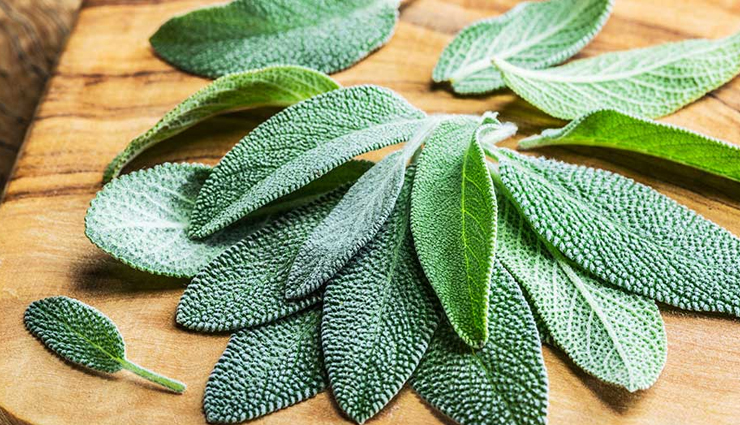
# Sage
Ingesting sage on an empty stomach yields a notable reduction in blood glucose levels. It effectively enhances insulin secretion and activity, thereby assisting in regulating blood sugar levels in prediabetics and managing them in individuals with type 2 diabetes. Additionally, sage has a positive impact on liver function, contributing to improved immunity. While sage is often used as a culinary addition to meat dishes, its true medicinal potential shines when consumed as a tea.
How to Incorporate Sage into Your Diet & Recommended Dosages:
Opting for sage in the form of tea is the most recommended approach. Alternatively, you can chew sage leaves or incorporate them into your meals or take sage supplements. To prepare sage tea, simply pour boiling water over 1-2 sage leaves in a cup and let it steep for 5 minutes. The suggested dosages are as follows:
Leaves: 4-6 grams per day
Dried leaves: ⅙-½ teaspoon
Tea: 2-3 cups per day
Optimal Timing for Sage Consumption:
For best results, consume sage tea or chew sage leaves early in the morning on an empty stomach. Sage leaves can also be included in your lunch and dinner recipes.
Where to Find Sage:
Sage can be readily purchased at grocery stores or online retailers.
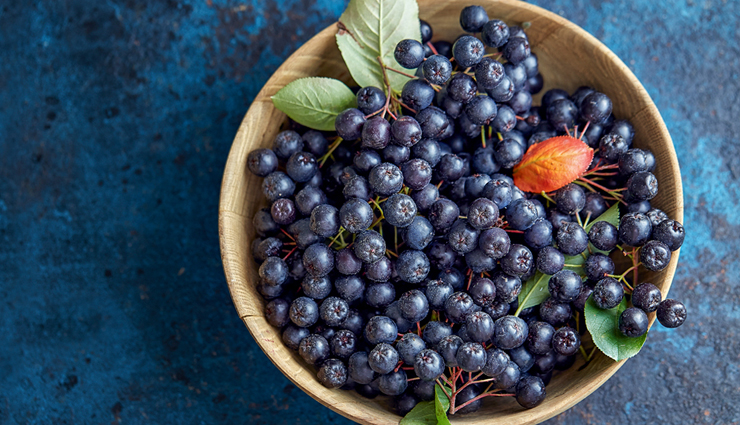
# Bilberry
Bilberry is yet another potent herb for managing diabetes that demonstrates remarkable medicinal potential. It is beneficial not only for individuals with type 2 diabetes, who grapple with elevated blood sugar levels, but it also exhibits effectiveness in treating diabetes mellitus. A key component in bilberry, known as glucoquinine, plays a pivotal role in lowering blood sugar levels. Bilberry infusions can also be advantageous for individuals whose vision has been compromised due to this condition. However, it's imperative to exercise caution if you are concurrently consuming bilberry infusion and diabetes medication, as it may lead to a potentially dangerous drop in blood sugar levels. Therefore, it is advisable to regularly monitor your blood sugar levels.
How to Incorporate Bilberry into Your Routine & Recommended Dosage:
Bilberry extract is widely accessible and is the safest method for regulating blood sugar levels. Here is the recommended dosage:
Bilberry extract: 10-100 mg containing 25% anthocyanosides
Optimal Timing for Bilberry Consumption:
For optimal results, consume the extract once in the morning and once in the evening, approximately one hour before dinner.
Where to Find Bilberry:
Bilberry extract can be conveniently purchased at pharmacies, Ayurvedic stores, or online retailers.
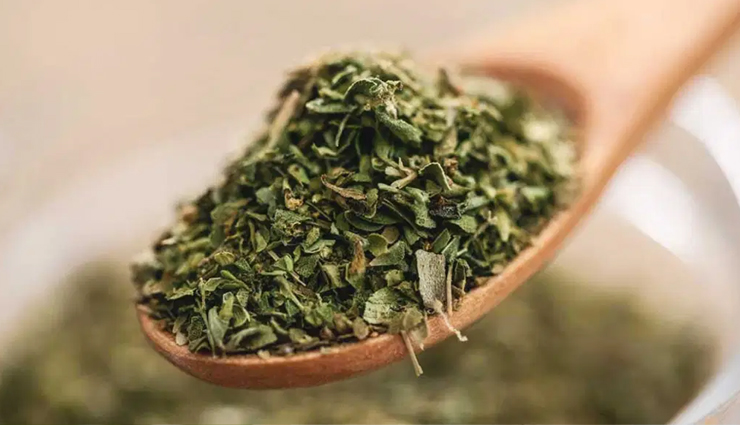
# Oregano
Also recognized as marjoram, this exotic herb originating from Spain and the Mediterranean region is renowned for its glycoside content, which contributes to lowering blood sugar levels in the body. Oregano's water extracts have demonstrated inhibitory activity against glycosidase in vitro. Furthermore, Rosmarinic acid, extracted from oregano, has been found to enhance pancreatic amylase activity, ultimately promoting improved insulin function. It also plays a role in bolstering the immune system, facilitating increased insulin activity, and mobilizing glucose within cells, thereby reducing the rate of carbohydrate formation.
How to Incorporate Oregano in Your Diet & Recommended Dosages:
Oregano is a common ingredient in various cuisines. You can utilize fresh or dried oregano in your culinary creations, chew the leaves directly, prepare oregano tea, or consume diluted oregano oil or capsules. To make oregano tea, add a teaspoon of dried or fresh oregano to a cup of boiled water and let it steep for 5 minutes. Below are the recommended dosages:
Oregano capsule: 600 mg per day
Oregano oil: 4-6 drops per day (when diluted)
Dried oregano leaves: 1 teaspoon, twice a day
Fresh oregano leaves: 4-5 leaves, twice a day
Optimal Timing for Oregano Consumption:
It is advisable to enjoy oregano tea in the morning and chew fresh leaves during this time as well. Dried oregano can be incorporated into your lunch and dinner recipes.
Where to Find Oregano:
Oregano is readily available for purchase at most supermarkets or through online retailers.
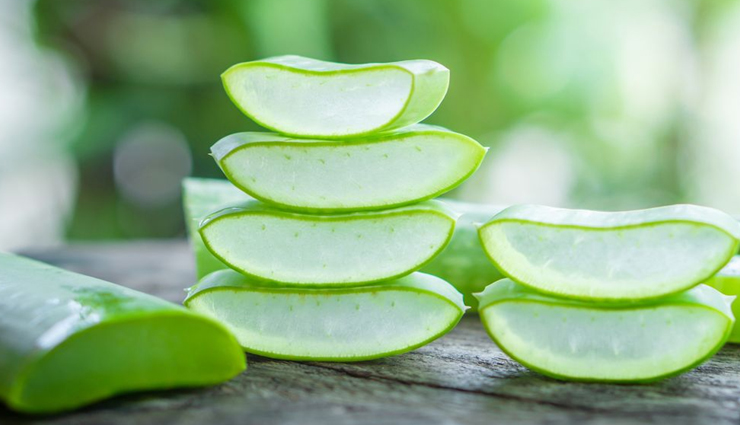
# Aloe Vera
Aloe vera, a succulent plant with fleshy leaves, thrives in various regions including India, South Africa, Mexico, Australia, and China. It has found widespread use in both the cosmetic and pharmaceutical industries. Aloe vera has a long history of use for its anti-inflammatory properties, digestive benefits, acne prevention, and hair fall reduction. Recent scientific research has unveiled its lipid-lowering and blood sugar-lowering properties.
How to Incorporate Aloe Vera into Your Diet & Recommended Dosages:
Aloe vera juice and extract are readily available in the market, and you can follow the instructions provided on the product label for consumption. Alternatively, you can prepare aloe vera juice at home by extracting the gel from a 3-inch aloe vera leaf, blending it, and diluting it with water and lemon juice. Aloe vera capsules are also available, and the recommended dosages are as follows:
Aloe vera capsule: 300 mg per day
Aloe vera juice or extract: Follow the instructions on the product label
Homemade aloe vera juice: 100 grams of aloe vera gel
Optimal Timing for Aloe Vera Consumption:
For best results, consume aloe vera juice or extract early in the morning and consider taking a capsule before lunch.
Where to Find Aloe Vera:
Aloe vera juice, extract, or capsules can be conveniently purchased at Ayurvedic stores or through online retailers.
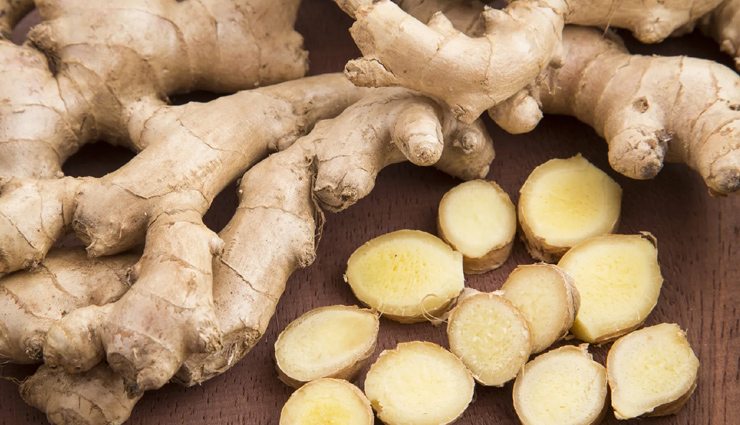
# Ginger
Ginger, a powerful spice, is a staple in Asian cuisines and is cultivated in various regions including China, India, Australia, Africa, and Jamaica. Much like aloe vera, ginger has a long history of utilization in herbal medicine dating back to ancient times. This aromatic spice has also demonstrated its ability to help regulate blood glucose levels. Numerous scientific studies have provided evidence that ginger contributes to blood sugar control by increasing insulin secretion and enhancing insulin sensitivity.
How to Incorporate Ginger into Your Diet & Recommended Dosages:
Ginger can be consumed in various ways, including chewing raw ginger, incorporating it into your meals, drinking ginger tea, using ginger powder, utilizing ginger oil, or adding it to a glass of juice. The recommended daily quantities are as follows:
Ginger root: 1-2 inches
Ginger oil: 3-4 drops
Ginger in juice: 1 inch
Ginger powder: ½-1 teaspoon
Optimal Timing for Ginger Consumption:
Starting your day with ginger tea is an excellent choice. However, it's advisable to avoid consuming ginger after 6 pm. You can enjoy a fruit juice with a touch of ginger juice before lunch.
Where to Find Ginger:
Ginger can be easily sourced at your local grocery store or online.
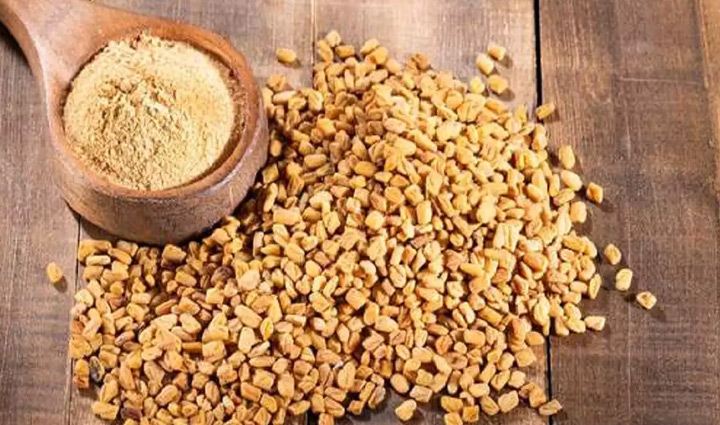
# Fenugreek
Fenugreek seeds and leaves are highly regarded for their effectiveness in addressing metabolic disorders and digestive issues. Native to regions including Spain, India, Pakistan, Bangladesh, Turkey, France, Egypt, Argentina, and Morocco, fenugreek has been utilized for generations to combat hair loss, address skin concerns, and boost sluggish metabolism. This versatile spice is also a staple in various culinary traditions. Scientific research has validated the blood glucose-lowering properties of fenugreek seeds, making them a potential remedy for type 2 diabetes.
How to Incorporate Fenugreek into Your Diet & Recommended Dosages:
To derive the benefits of fenugreek, it is advisable to soak the seeds overnight. Additionally, you can incorporate fenugreek seeds and leaves into your meals. Below are the recommended daily amounts:
Fenugreek seeds: 2 teaspoons
Fenugreek powder: 1 teaspoon
Fenugreek leaves: 200 grams
Optimal Timing for Fenugreek Consumption:
Kickstart your day by consuming fenugreek-soaked water in the morning. Fenugreek seeds or leaves can be included in your lunch or dinner.
Where to Find Fenugreek:
Fenugreek seeds and leaves are readily available for purchase at most supermarkets or through online retailers
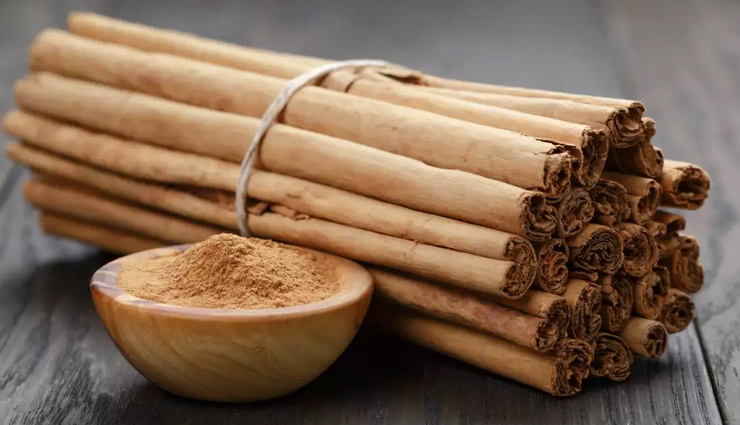
# Cinnamon
Cinnamon, a pungent spice derived from the bark of cinnamon trees, is a common ingredient in South Asian cuisine and desserts. This aromatic spice possesses remarkable medicinal properties and is known to be beneficial for managing diabetes, as well as for addressing issues such as obesity, muscle spasms, diarrhea, and the common cold. Numerous scientific studies have confirmed that regular consumption of cinnamon can effectively regulate high blood sugar levels, making it a viable alternative treatment for diabetes.
How to Incorporate Cinnamon into Your Diet & Recommended Dosages:
Cinnamon can be consumed in various forms, including cinnamon bark, powdered cinnamon, or as capsules. The recommended daily dosages are as follows:
Cinnamon stick: 2 inches
Cinnamon powder: ½ teaspoon
Cinnamon capsule: 500 mg per day
Optimal Timing for Cinnamon Consumption:
Enjoy cinnamon tea in the morning and evening. Add cinnamon powder to your breakfast smoothie or juice. If you prefer capsules, take them once every two days.
Where to Find Cinnamon:
Cinnamon is readily available for purchase at most grocery stores and can also be found online.
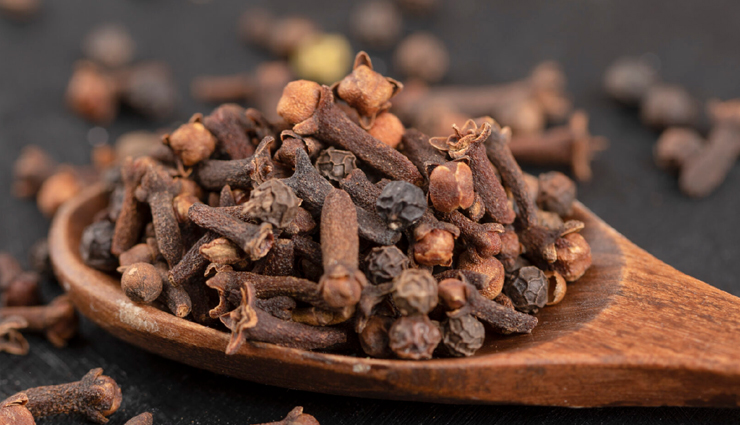
# Clove
Clove, a flower bud commonly used in Indian, Pakistani, Bangladeshi, Sri Lankan, and Tanzanian cuisines, is renowned for its aromatic flavor and possesses notable medicinal properties. This spice boasts anti-inflammatory, antioxidant, and digestive attributes. Scientific research has corroborated the positive effects of clove on improving insulin sensitivity and reducing levels of bad cholesterol and triglycerides.
How to Incorporate Clove into Your Diet & Recommended Dosages:
Clove can be consumed in various ways, including chewing it raw, using whole or powdered cloves in culinary preparations, or taking clove capsules. The suggested daily dosages are as follows:
Clove: 2 cloves for chewing, 5-6 cloves in food preparation
Clove powder: ½ teaspoon
Clove capsule: 500 mg per day
Optimal Timing for Clove Consumption:
Soak 3-4 cloves in a cup of water overnight and drink it in the morning. Incorporate whole or powdered cloves into your lunch or dinner recipes. If you prefer capsules, take 2-3 clove capsules in a week before dinner.
Where to Find Clove:
You can easily purchase cloves at any grocery store, while clove capsules are available at Ayurvedic stores and online retailers.
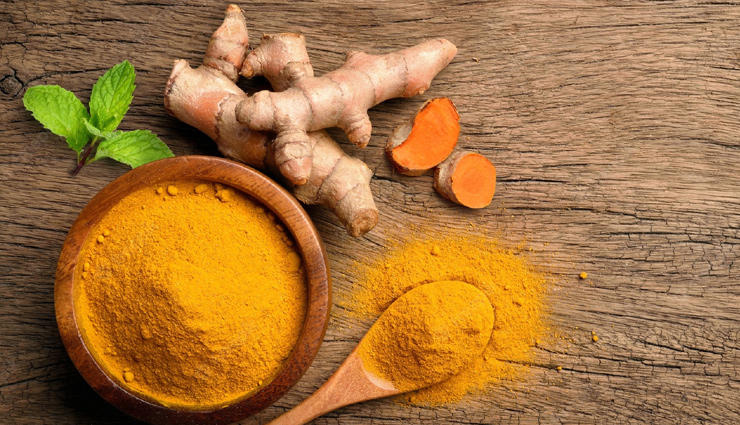
# Turmeric
Turmeric, a vibrant spice commonly featured in Indian, Bangladeshi, Pakistani, and Iranian cuisines, imparts a distinctive color and flavor to dishes. Beyond its culinary uses, turmeric has a rich history as an Ayurvedic remedy for addressing bacterial infections, wound healing, skin conditions, and digestive ailments. The compound responsible for turmeric's yellow hue and therapeutic properties is known as curcumin. Curcumin has been identified as having a blood glucose-lowering effect, with research demonstrating its potential to reduce blood sugar levels in individuals with type 2 diabetes.
How to Incorporate Turmeric into Your Diet & Suggested Dosages:
Turmeric can be consumed in various forms, including raw, as a paste, in powdered form, or as capsules. The recommended daily dosages are as follows:
Raw turmeric root: ½ inch
Turmeric root paste: 1-2 teaspoons
Turmeric powder: 1-2 teaspoons
Turmeric capsule: 500 mg, twice a day
Ideal Timing for Turmeric Consumption:
Chew a small portion of raw turmeric on an empty stomach. Incorporate turmeric paste or powder into your cooking, smoothies, or juices. Take turmeric capsules before lunch or dinner.
Where to Find Turmeric:
Turmeric is readily available at Indian or Pakistani grocery stores and can also be purchased online for your convenience.
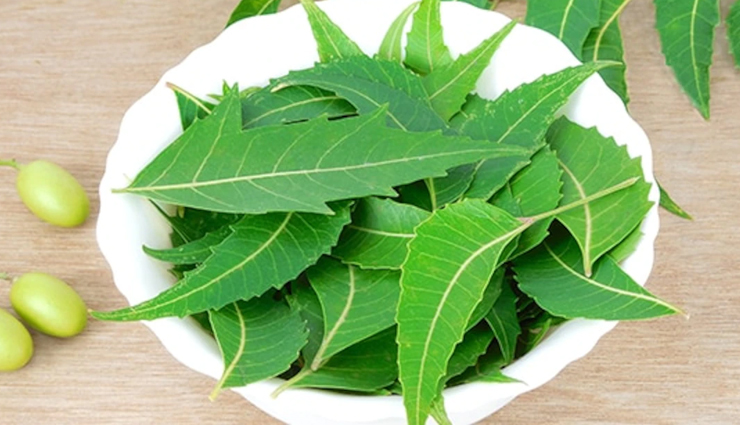
# Neem
Neem, scientifically known as Azadirachta indica, is indigenous to India and thrives in neighboring countries such as Bangladesh, Nepal, Sri Lanka, and Pakistan. Neem trees are characterized by their bright to dark green leaves, which are revered for their numerous medicinal properties. Traditional medicine utilizes various parts of the neem tree, including its bark and fruit. According to Ayurveda, neem boasts antidiabetic, antifungal, antibacterial, antiviral, antioxidant, and anti-inflammatory properties. Several studies have suggested that neem possesses blood glucose-lowering properties, corroborating its antidiabetic attributes as described in Ayurveda.
How to Incorporate Neem into Your Diet & Suggested Dosages:
Neem can be consumed by chewing thoroughly washed neem leaves, taking neem paste, or using neem capsules. Here are the recommended dosages:
Neem leaves: 4-5 leaves
Neem paste: 1 teaspoon
Neem capsule: Follow the instructions on the bottle
Ideal Timing for Neem Consumption:
For optimal effect, consume neem paste diluted in a glass of water early in the morning. Chewing neem leaves in the morning is also effective. Neem supplements should be taken once a day before breakfast.
Where to Find Neem:
You can purchase neem supplements or capsules online or at Ayurvedic stores. Fresh neem leaves can typically be found at local markets or Indian supermarkets.
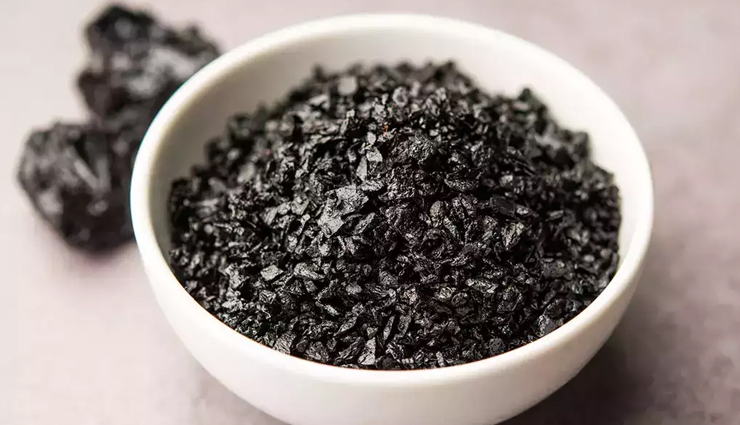
# Shilajit
Shilajit is a unique substance found in regions such as the Himalayas, Altai Mountains, Caucasus Mountains, and Gilgit-Baltistan Mountains. It is characterized by its tar-like appearance and can range in color from light brown to dark brown. Shilajit possesses antioxidant properties and has been traditionally used to enhance muscle strength, reduce the risk of heart disease, combat aging, boost fertility, and stabilize blood sugar levels.
How to Incorporate Shilajit into Your Diet & Suggested Dosages:
Shilajit can be consumed along with milk, honey, or sesame oil, typically in the form of high-quality shilajit supplements. Here is the recommended dosage:
Shilajit capsule: 100-300 mg per day
Ideal Timing for Shilajit Consumption:
For best results, consume Shilajit in the morning and before lunch or dinner.
Where to Find Shilajit:
You can purchase Shilajit supplements online or at Ayurvedic stores.


